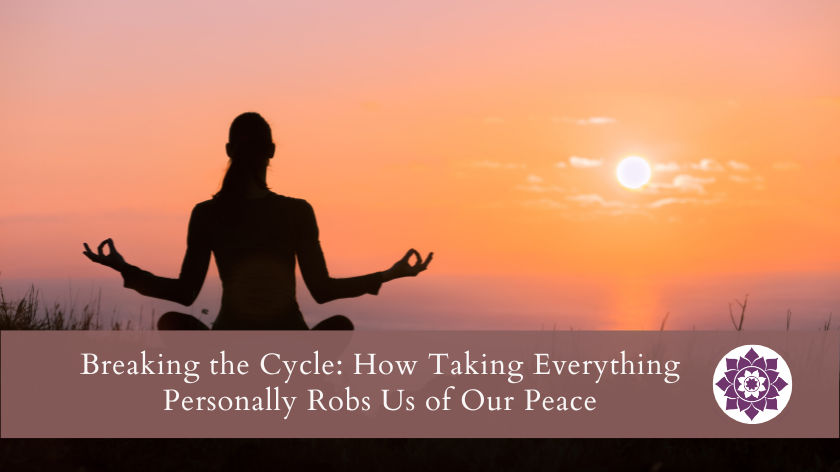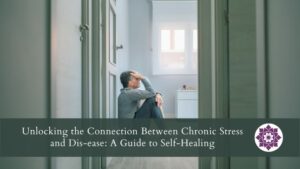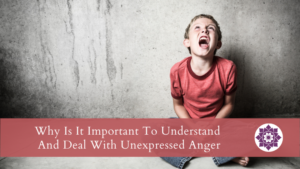What does it mean when you say nothing is personal?
Let’s start by discussing a common struggle that many of us face. Let’s say you are having a good day and then someone makes a comment about how you are dressed, or points a finger at you saying you are not that smart, makes fun of the way you walk or talk, or you are at work and your colleague or boss points out a mistake in front of everyone. How do you handle criticism or difficult situations without becoming defensive or reactive?
When someone says something hurtful to you, in your head you are saying, they said something so mean to me, it was natural for me to feel offended or get angry. So I reacted the way I did. It goes one step ahead because you feel you are right and they are wrong, so now you have the right to get hurt and be offended. It is almost like, how can you not get hurt by something like th
Interestingly friends and family will also support this feeling, by saying, yes, they said such mean things to you, how can you ever forgive them? What happens internally is that this situation or pain gets hard wired. You recall it each time with more drama in the way you tell the story to someone, months, years and even decades later.
Notice how your story carries sentences like these:
- How can I ever forget how awful that made me feel?
- I can never forget that day in my life.
- That moment crushed me for life.
- I still remember like it happened yesterday.
It runs deep
You’ll notice you even remember what dress you were wearing, what day it was, what was the weather like, who you were with…and all of these things in your memory, make the painful moment come alive in multicolour! Making it so real for you, that you almost feel the freshness of the wound, the pain, the tears, the sinking feeling you had, how your heart ached and somehow, we take pride in our memory. And how deeply embedded it is in our lives. Don’t we?
Each time you recall the incident, you rub the wound all over again making it more painful. This is how you also get attached to your pain. This further becomes your story, you get attached to it. It is now part of you.
Sidra Jafri says
Have you noticed how a picture looks different when you change the frame? The same is true of your story. When you learn to distinguish between fact and interpretation and change the meaning behind those facts, then your entire story will change, if you want it to.
How do you do that? What happens when you take things personally?
There are 2 crucial aspects to taking things personally.
Ego – The bigger the ego, sooner you get hurt. When you take things personally, you make yourself the centre of every conversation or situation, and you find a way to make it all about you.
They said something and you got hurt. Now you carry this for years, every memory of that incident rubs the wound and makes the pain deeper. So a few years later you may say – ok I’ve carried it too long, so now I’m willing to forgive. Then your ego kicks in and says, I can forgive, but I can’t forget, that will take another decade maybe. Do you see how this entire cycle takes up an entire lifetime – leaving us restless, in pain, in guilt and also causes disease in our bodies?
Give away your power – In that moment of high emotion, when you are hurt, you often make reactive decisions or say things that you may later regret. This also begins a vicious circle of hurting yourself and hurting the other person too. The more pain you feel, the more painful words or thoughts you send them. So, it’s important to recognize that we give power to others by placing value on what they say and bring down our energetic vibrations drastically.
Don’t Take Anything Personally. Nothing others do is because of you. What others say and do is a projection of their own reality. When you are immune to the opinions and actions of others, you won’t be the victim of needless suffering. – Don Miguel Ruiz
Here are 5 things you can do when someone says something painful or hurtful to you
Check their Intention – What if we try to understand the other person’s intentions? Maybe they didn’t mean to be hurtful, and said what they did because they care for us or they said it in innocence. Or perhaps we misinterpreted their words and they meant something else altogether.
Understand where they come from – If someone is being rude, we can try to understand where they might be coming from. Maybe they are struggling with their own unhappiness and their negativity is a reflection of that.
Let go of assumptions – It’s important to keep in mind that everyone experiences life differently, and we all have our own worlds that we live in. Even if you are living under the same roof, your experience of life can be different from others. This is because we perceive life from our values, experiences and beliefs. So, when we take things personally, we assume that others know what’s going on in our world, but they don’t. Eg., when someone comments on how you are not losing weight or getting that appraisal or making that extra income despite working hard, they don’t know what battles you are fighting inside. Similarly, we may judge others based on our own experiences and assumptions.
Become immune – Inspite of the above when when we still take things personally, it means they can easily hook us with their opinions. But, when we don’t take things personally, we become immune to their poison. People’s opinions of us are based on their own feelings, emotions and circumstances, which may change from day to day. What they think about you is their problem not yours. When you refuse to buy their opinion of you, you refuse to take in their emotional garbage and make it yours.
Drop the image of self – In fact when we go deeper, you’ll also notice how our image of ourselves and who we truly are may be different things. Even the opinions we hold about ourselves may not be accurate. The reason is every thought and opinion in our mind has its own personality and voice. We always have opposing thoughts fighting for our attention in our mind. One part of us says we are smart, the other part says the opposite. And the cacophony of a million voices in our heads, going off at the same time, can only lead to more confusion and chaos.
By learning to stop taking things personally, we can reduce negative emotions such as anger, jealousy, envy, and sadness from our lives. So, don’t let the opinions of others define you or dictate how you feel about yourself. It’s time to take control of your emotions and reactions, and learn to navigate difficult situations with grace and resilience.
Here is how do it
As soon as someone says something inappropriate. You counter the hurt with one phrase instantly – It’s about them. Not about me.
What if they are appreciating you? Do you onboard that appreciation?
The answer is NO. It’s about them. Not about me.
You do this when someone praises you also. When someone compliments you – You can graciously thank them, but not allow the appreciation that’s coming from them to validate who you are. It’s about how they are feeling right now and how they perceive you in this moment. The next moment, they can criticise you, if they feel what you did or said is not according to their expectation.
If you imagine your state of mind as a pendulum, then your state of being needs to be at the centre, in neutrality – at all times. If it oscillates in one direction when someone praises you, it will definitely oscillate to the same degree in the opposite direction when someone criticises you. When you move from neutrality in appreciation, you are sure to do the same in criticism.
That’s why you don’t onboard appreciation or criticism. If they praise you – it’s about how they feel, what their values are and how they see beauty in all they see. When someone is happy, they can truly appreciate the beauty in everything around them. It has nothing to do with you.
When I’m neutral with praise, when someone criticises – this same thought will tell me, it’s about them, not me. This way I’m protected at all times from external factors affecting my peace of mind. The truth is when you are happy you see beauty even in dirt. And when you are unhappy, you look for dirt in everything around you, and ignore the beauty.
First 15 minutes
The first 15 minutes when someone shoots you with something are the most important. Use your oxygen mask to protect you – the mask is “It’s not about me, it’s about them”.
It’s not about me, essentially means – They are having a bad day, they are in pain, they are hurting, they are projecting their emotional garbage onto me, they are unhappy. Protect yourself instantly, so you can stay at the neutral position of the pendulum – grounded, secure, peaceful and safe.
When you get hurt when someone says something – you radiate pain and hurt, because that is what you are experiencing. When you don’t create the hurt – and tell yourself it’s not about me, you radiate love. You do not hurt, you no need to give, you no need to forgive, no need to forget.
If a loved one says something hurtful – say to yourself – it’s about them, not about me. Change where you are coming from – that is change your default question from how can he say that to me to I wonder what he is unhappy about, that’s making him say or do these things. You don’t consume their emotional garbage and pain and make it yours. You make yourself immune by using the magic phrase – it’s about them, not about me. Now you are immune to the pain, so you don’t get hurt, then there is no need to forgive or forget, you are in your power. You simply radiate love and respect at all times.
Embracing the true essence of Nothing is Personal can be a total game changer in the way you perceive the world around you and how you respond to it. We invite you to take this onboard, try it for a few weeks and journal the changes.
To help you set yourself free from the past situations where you may have taken things personally, please listen to our guided process on our podcast.




